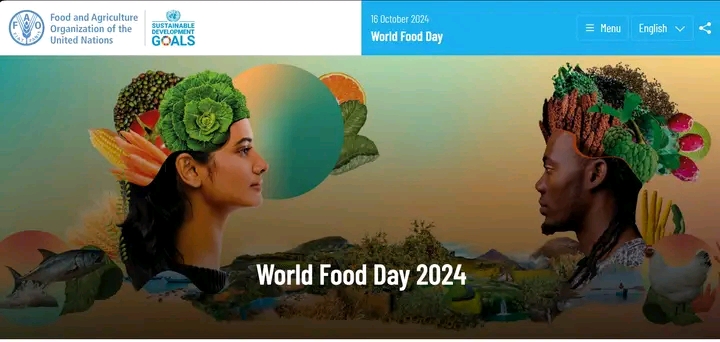From David Onuoja, Abuja
A new report from the United Nations Convention to Combat Desertification (UNCCD), and the Food and Agriculture Organization of the United Nations (FAO), has revealed that 80 percent of food produced in developing Countries are done by women but yet, they have less than 20 percent landownership.
The report also showcase that women lead solutions for building drought resilience.
According to Ibrahim Thiaw, Executive Secretary of the UNCCD, said despite facing systemic barriers such as limited land ownership, women are developing innovative solutions that enable their communities to adapt to the increasingly harsh environmental conditions.
The report which was Launched on the occasion of the International Day of Rural Women titled: Women-Led Solutions for Drought Resilience calls for better recognizing and supporting women-led efforts to protect vulnerable communities from the devastating effects of drought
The Executive Secretary of the UNCCD, also revealed women’s role in food production, saying, Women produce up to 80 percent of the food in developing countries but own less than 20 per cent of the land globally. This disparity limits their access to resources such as credit and training and their ability to prepare for and recover from droughts exacerbating their vulnerability to climate change.
Ibrahim Thiaw, added that, research has shown that securing land rights for women will improves household nutrition, increases spending on children’s education and enhances overall economic conditions.
This also underscores that women’s land rights are crucial for achieving food security, he expressed.
On drought he said, Women and girls are not only experiencing greater hardships but are also demonstrating remarkable leadership in the face of drought.
Droughts contribute15 percent of disaster-related economic losses globally and are responsible for 85.8 per cent of livestock deaths.
According to him, “Women have long been viewed as the most vulnerable to drought, but as this report reveals, they are also the most resilient, leading the way in developing solutions to one of the world’s most pressing challenges.
“The ingenuity and resourcefulness of women combatting drought around the world is boundless. Whether in the Africa’s Sahel region, in northern Kenya, in Iran, in Peru or in Morocco, women have proven their resilience and their ability to overcome the most inextricable conditions to keep their families thriving.
“Moreover, they manage unpaid care work, such as caring for children and the elderly, which further complicates their ability to cope with drought and underscores the need for drought plans to take into account specific challenges faced by women.
“Women and girls are disproportionately affected by drought due to persistent structural gender inequalities that limit their access to essential resources such as land, water, and financial services”, the report revealed.






